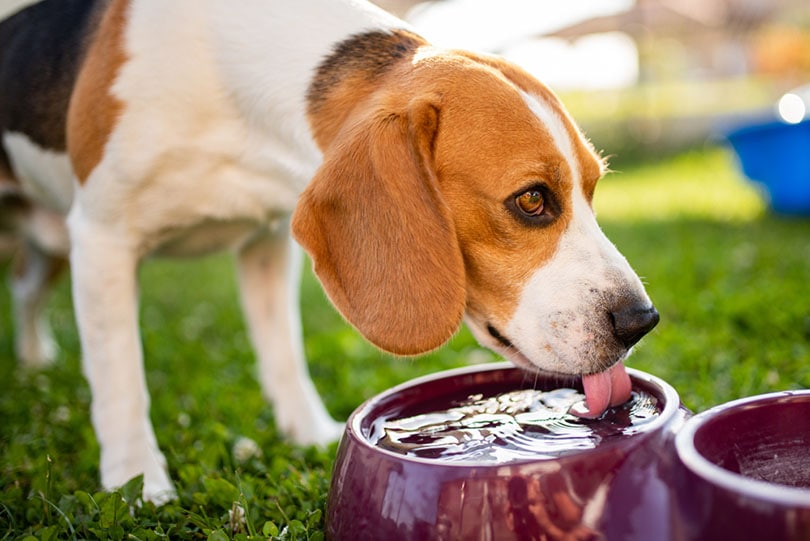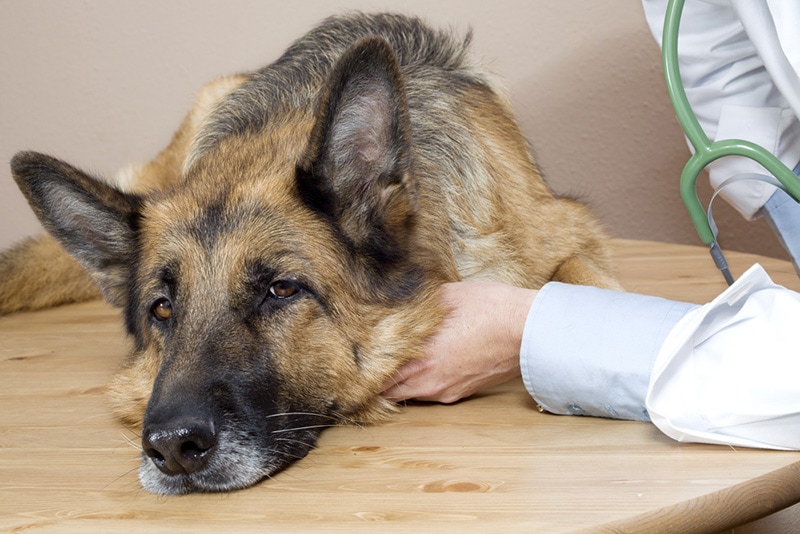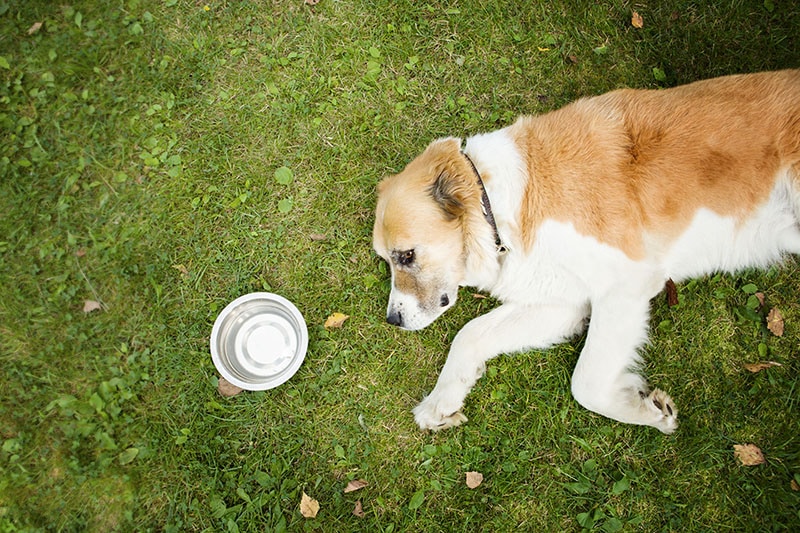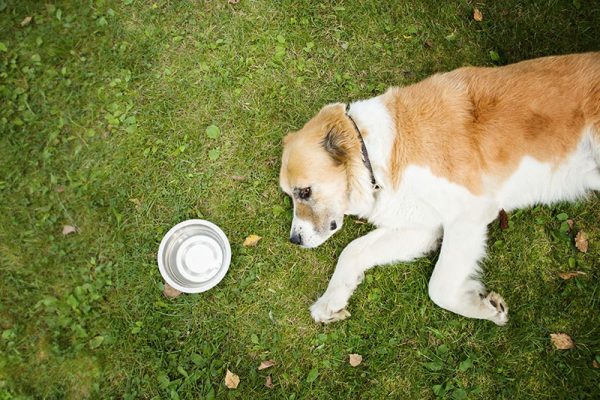Maybe you have found a stray or witnessed a dog sidle up to someone’s backyard without access to fresh water. Or maybe your pet dog is refusing to drink water, and you’re wondering how long dogs can survive without water.
Water is one element we all require—dogs and humans alike. Your dog’s water needs depend on their age, environmental temperature, and health status. On average, an adult healthy dog should not go more than 24 hours without water. If your dog has not drunk for more than a day, you should contact your vet since they’re at high risk of dehydration. This upper limit is reduced in extremely hot conditions, or if your dog is old, a puppy, or already ill. The longer your dog goes without water, the more dangerous it becomes for every system in their body.
So, while most dogs won’t strictly die without water for 24 hours, it can have severe detrimental effects on many internal organs and the way their system functions. Dehydration should not be taken lightly. Let’s explain.
How Long Dogs Can Live Without Water
If a domestic dog had an owner and they were only given water once every few days, we would consider that cruel animal abuse, which is punishable by law.
Lack of water affects every single bodily system, as mammals require it to operate every organ. Within the first several hours of water deprivation, it starts to impact different systems in your dog’s body. Essentially, it stops each operating system from working correctly due to improper hydration.

Dehydration Happens Fast
Dehydration can come on quickly in your dog. One of the obvious signs of dehydration is loss of skin elasticity. Other signs include loss of appetite, lethargy, and panting. If your dog is dehydrated, things can go sideways from here.
Other signs of dehydration include:
Dehydration can lead to serious complications, like kidney failure, coma, and even death. This is especially true if your dog is suffering from extra fluid loss like vomiting, diarrhea, or excessive urination due to other health conditions.
So, if you notice the very early stages, it’s time to get ahead before it becomes severe.
If Your Dog Is Refusing to Drink Water
Perhaps your dog has stopped drinking water. Loss of appetite and other signs can be huge indicators of something being wrong. If your dog refuses fresh water, it might be time to travel to the vet.
Here are a few reasons your dog might not be drinking:
You might also notice in these circumstances that your dog has trouble using the bathroom. If you notice a decreased urine output or signs of pain during bathroom trips, it’s even more important to take note of this.
What to Expect at the Vet
Veterinary intervention is necessary if you have found a neglected dog or a dog is not eating or drinking correctly. Depending on the level of dehydration, your vet might intravenously administer fluids to rehydrate your dog’s body.
To get to the underlying cause of lack of hydration, your veterinarian will perform a series of tests to see how each internal system is functioning. Depending on your veterinarian’s findings, additional testing, such as X-rays or ultrasound scans, might be required.
If you discover that your dog has any kind of bacterial infection, they might very well prescribe an antibiotic to eliminate it. Some viruses have to work themselves out but might still require other treatments so your dog can stay hydrated.

Reporting Animal Abuse
Animal cruelty is a severe crime. If you suspect abuse, it is your solemn duty as an animal lover to report it accordingly. However, you might need clarification on the avenues to take for immediate results and attention.
This can be tricky, depending on where you live. In most cases, you will have a rescue or humane society nearby. However, some places do not have active facilities to care for such matters.
If that happens, contact local law enforcement. Sadly, many areas lack funding in this arena, so help might be hard to find. 9-1-1 is still an option for you if an animal is in dire need.
Conclusion
Dogs should always have a freshwater source available to them. If you suspect a dog is abused or neglected, it’s essential to get the right professionals to check up on the animal. See the vet if your dog is refusing to eat or drink for more than 12 to 24 hours. They may very well have an illness, and those are the first signs that you will see. Getting them to the vet will ensure that they get diagnosed and treated accordingly for a prompt recovery.
See also:
- Could Dogs Survive in a World Without Humans? The Interesting Answer!
- Why Is My Dog’s Nose Dry? 7 Possible Reasons (Vet Answer)
Featured Image Credit: Kazantseva Olga, Shutterstock













